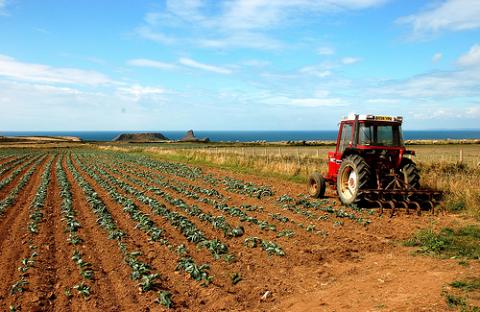Food as a public good?

Health, poverty and social justice concerns are all central aspects of food consumption and production, on both the local and the global level. By Sally Daly.
Across Ireland, farmers, producers, state organisations and consumers are engaging in conversations about our sustainable food future. These conversations are coalescing particularly around two divergent ideas. Namely, fostering our capabilities to build on local production and consumption and separately, capitalising on our growing export abilities to generate revenue for the local economy as an agri-food nation. The notion of food as a public good seems to be missing from these conversations. That is, the idea that food has an essential social function which critically aligns it with concerns on health, justice and equality of access.
While local appears to have more bite than organic, it is not clear what local actually means. It might include food from within a 10 or 100 mile radius, it may even involve confusing ‘local’ with ‘Irish’. Equally, the term can apply both to conventionally produced produce and to food sourced from within an ‘alternative food network’. At its purest, local seems to connect with a concern with self-sufficiency and is implicated in a wider discussion on food sovereignty.
At the same time as we promote ‘local’, the majority of us source our main grocery items with both distant and more nearby provenance through supermarket outlets. Such outlets have dramatically increased their presence over the last decade with supermarkets arguably dictating the terms and conditions of production and supply.
Separately, currency exchange rates, world demand and increasing competitiveness are expected to drive food industries, all part of the heralded upward trend in Irish food exports. Yet, fostering our capacity as an export nation while at the same time promoting the concept of local exposes a contradiction at the heart of Irish food policy. If the turn to local food is motivated by a concern for self-sufficiency partly inspired by the peak oil crises, how can we simultaneously promote the turn to more distant markets? In fact, both ideas suggest a selective engagement with the reality of our embeddedness in a globalised market.
At the same time as we choose apples from New Zealand over fruit from Tipperary, horticultural commodities - amongst the most perishable of exports - are finding new routes out of Ireland. We already export 80% of our mushroom stock to the UK and potatoes have found an export market in Russia, satisfying a drought induced slump in the Russian harvest. Meanwhile beef exports out of Ireland are the fourth highest in Europe and three quarters of our exports go to high value markets in the EU and the UK. Yet our continued dependence on subsidies for dairy and beef production implicates us in a global system where we benefit unequally.
Furthermore, the reality is that for the less perishable of our locally produced artisanal products, online sales and routes to other markets outside Ireland are emerging as a critical growth area.
Yet food poverty, both locally and globally, is a very immediate and pressing societal issue and needs to be part of a discussion on a sustainable food future. In Ireland, low-income households are most affected by the relatively high cost of food. Access to fresh fruit and vegetables and nutritionally beneficial food is the critical element of the food basket that gets left out.
With rising food prices recognised as a critical concern, the biggest impact will obviously be felt in low-income countries where staple items demand a much larger share of household incomes. Low income households in Ireland spend a relatively higher proportion of their income on food but nevertheless have a poorer diet in terms of food and nutritional intake. The negative health consequences are linked to a rise in non-communicable diseases such as diabetes for these groups.
In addition, sustaining the food industry in Ireland, within which buying local is implicated, is dependent on the availability of low-income workers for whom there may be limited scope to negotiate the terms and conditions of their labour. Such labour has for the most part lacked appeal for an Irish workforce, even with rising unemployment. Yet, the dependence on migrant labour articulates yet another critical link in the global food supply chain.The meaning of sustainable production for low-income consumers, including those who work within the agricultural and food production industries, is undoubtedly linked to job security and the ability to maintain families.
As we participate in conversations about sustainable food, how do we come to terms with the reality of food production and consumption that better reflects our position as global consumers and producers? In this moment when we are beginning to think differently about food and farming (and production), there is a critical opportunity to broaden the discussion to align the interests of an emerging foodscape with health, poverty and social justice concerns.
Aligning these concerns as inter-departmental policy and program strategies would establish the basis of a more just food system in terms of access to healthy, affordable and fairly produced food. Reconfiguring the Common Agricultural Policy (CAP) into a common EU sustainable food policy, and exploring with fellow member states ways in which the CAP can be shifted in this direction would establish a common framework that links interests across the different sectoral groups and embeds food as a public good into conversations about our sustainable food future.
Image top qwertyuiop.
